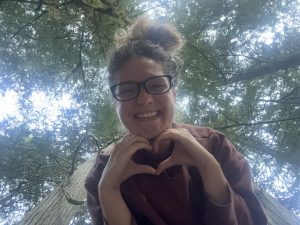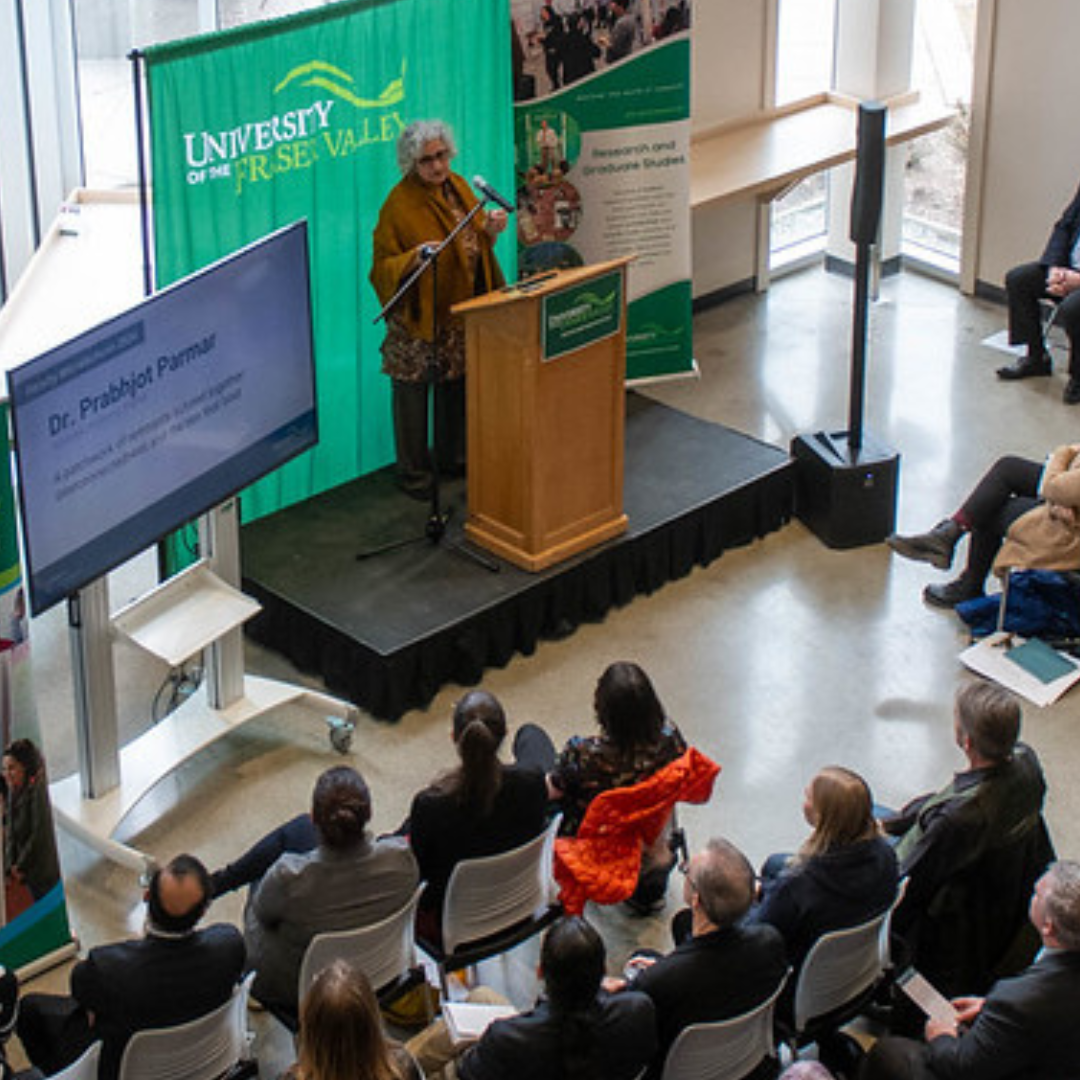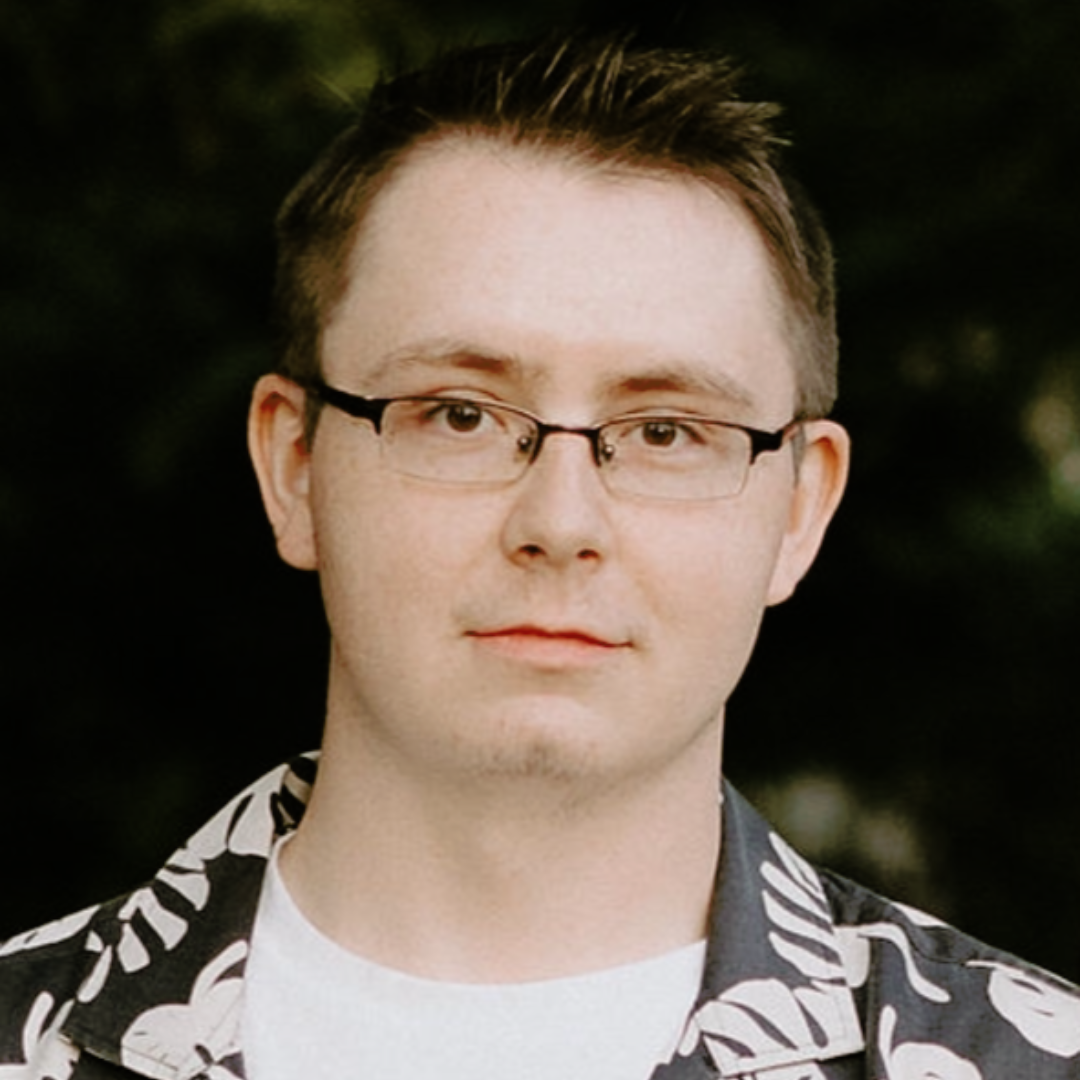116 ways to say Hello: Stephanie’s passion for the language of belonging
 Abbotsford is a diverse place, shaped by many cultures, nationalities, and backgrounds. But how often do we pause to truly recognize just how diverse this city is? Would it surprise you to learn that over 116 different languages are spoken in Abbotsford today?
Abbotsford is a diverse place, shaped by many cultures, nationalities, and backgrounds. But how often do we pause to truly recognize just how diverse this city is? Would it surprise you to learn that over 116 different languages are spoken in Abbotsford today?
For Stephanie Ohlmann, a UFV student, that surprising fact became the heart of a journey she never imagined.
Stephanie is no stranger to hard work. As an Educational Assistant for over a decade, she has supported students with diverse learning needs while pursuing not just one but two degrees and a certificate at UFV — a Bachelor of Arts in English, an Indigenous Studies Certificate, and a Bachelor of Integrated Studies focusing on Justice, Equity, Diversity, Inclusion (JEDI), and Multiculturalism.
After beginning her university journey years ago, Stephanie stepped away to focus on working directly with children and families. But when life presented a crossroads, she made a courageous choice: to return to UFV and finish what she started. Not only that, but she expanded her academic ambitions to address the gaps she saw — particularly around Indigenous knowledge and multicultural education.
And then came the project that changed everything.
From class assignment to community engagement
Stephanie’s passion project, “It Starts With Hello”, was born from a children’s literature assignment in an English class on Diversity and Accessibility. The task: find a way to make a children’s story more inclusive and accessible. Drawing from her experiences with students, Stephanie decided to explore the simple power of greeting someone in their own language.
She began by asking: How many languages are actually spoken in Abbotsford? What she uncovered blew her away — not 20, not 50, but 116 languages. This discovery sparked a mission: to learn how to say “hello” in every single one.
Her work evolved quickly. From recording multilingual greetings on interactive buttons for a class display to securing a UFV Student Research Grant, Stephanie’s project took on a life of its own. She became a City of Abbotsford Ambassador, presented to the Community Belonging Collaborative Abbotsford (CBCA), and even launched dedicated social media platforms to share her journey. But Stephanie didn’t stop there.
A Book to celebrate every child’s voice
Recognizing how few children’s books reflect the rich cultural and linguistic diversity of her community, Stephanie set out to create her own. Her soon-to-be-published children’s book, “Hello Abbotsford”, will introduce young readers to the many ways people greet one another across cultures.
“Every child deserves to feel seen, valued, and celebrated,” Stephanie says. “When we learn to say hello in someone’s home language, it’s more than a word — it’s an act of recognition and inclusion.”
With the support of UFV faculty like Dr. Michelle Superle and advisors like Dr. Wade Deisman, Associate Dean of Social Sciences at UFV, Stephanie is turning her research into a powerful educational tool — one that she hopes will foster empathy, belonging, and intercultural understanding among the next generation.
At its heart, Stephanie’s work is about more than just words. It’s about reshaping how we understand belonging.
“We all deserve to be welcomed as we are,” she explains. “So many people feel they have to change parts of themselves — even their names — to fit in. I want to help change that. I want people to feel proud of their languages, cultures, and identities.”
By bringing awareness to the diversity that already exists within Abbotsford, Stephanie hopes to spark a broader community conversation — one that starts, simply, with hello.
As she looks ahead to graduating with her BA and Indigenous Studies Certificate in 2026 and completing her BIS by 2028, Stephanie knows her journey is far from over. Whether in classrooms, community events, or the pages of her children’s book, she continues to remind us that inclusion, respect, and celebration begin with the smallest of gestures. It also could start with “hello”.




 Logan York is a recent BA graduate in Psychology with a minor in Criminal Justice. Originally from Red Deer, Alberta, Logan found his way to British Columbia, where he has lived most of his life and began shaping his career aspirations.
Logan York is a recent BA graduate in Psychology with a minor in Criminal Justice. Originally from Red Deer, Alberta, Logan found his way to British Columbia, where he has lived most of his life and began shaping his career aspirations.